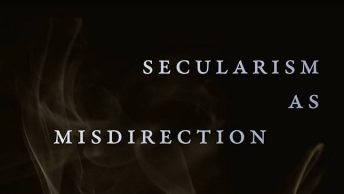to Information’ movement, the Delhi High Court in the case of Registrar of Companies v. Dharmendra
Kumar has ruled that the Right to Information Act, 2005 will not apply
to those documents which can be accessed under existing legislation and rules.
documents which were requested by the RTI applicant could also be accessed by
the applicant under Section 610 of the Companies Act. There are
several Indian laws which have provisions similar to Section 610 i.e. a
certain class of records held by the RoC are required to be open to general public
inspection. The difference however between such laws and the RTI Act
lies in the fact that the RTI Act guarantees access within thirty days and at a
reasonable cost. As per the present Government Rules the cost of a RTI
application is at just Rs. 10, while the cost of photocopying the required
information or requesting for certified copies is at a mere Rs. 2 per page.
Contrast this to some of the sky-high figures charged by the Central Govt.
organizations like the Patent Office which charges Rs. 4000 for a certified
copy of a document regardless of whether the document is 1 page or 10 pages!
Most importantly the RTI Act provides the citizen with the threat of sanction against
the public servant who delays providing information or provides wrong
information. It is a combination of the above factors which have contributed to
the success of the RTI Act in India.
High Court deals with different arguments pertaining to an interpretation of
Section 2(j) and Section 3 of the RTI Act. However for the purposes of this
article, I would like to focus on the main issue of whether Section 22 of the
RTI Act, 2005 can over-ride Section 610 of the Companies Act i.e. can a
citizen demand information under the RTI Act despite the same information being
accessible under a separate legislation.
as follows:
have effect notwithstanding anything inconsistent therewith contained in the
Official Secrets Act, 1923, and any other law for the time being in force or in
any instrument having effect by virtue of any law other than this Act.”
reasonable interpretation of the above provision would conclude that the RTI
Act would have effect regardless of it being inconsistent with anything
contained in any other law in force. The RTI Act could be held to be consistent
with the provisions of any other law only in those circumstances where the
other law provided for similar if not identical rights to the citizen as
provided under the RTI Act. Instead of analysing the similarities or
dissimilarities between the RTI Act and Section 610 of the Companies Act, the
Delhi High Court comes to the following bland conclusion:
I may notice that I do not find anything inconsistent between the scheme
provided under Section 610 of the Companies Act and the provisions of the RTI
Act. Merely because a different charge is collected for providing information
under Section 610 of the Companies Act than that prescribed as the fee for
providing information under the RTI Act does not lead to an inconsistency in
the provisions of these two enactments.”
above analysis completely misses the strong rights provided under the RTI Act,
namely the 30 days limit and the ‘rights-based’ grievance redressal mechanism.
judgment then goes on to state:
otherwise, the provisions of the RTI Act would not override the provision
contained in Section 610 of the Companies Act. Section 610 of the Companies Act
is an earlier piece of legislation.”…………. “Therefore, the later general law
cannot be read or understood to have abrogated the earlier special law.”
above principle which is best captured by the Latin maxim of leges
posteriors priores conterarias abrogant has been incorrectly applied by the
Delhi High Court because this principle of statutory interpretation applies
only when two conflicting laws make no reference to each other and where both laws have failed to provide any guidance on how to resolve the
conflict. Section 22 of the RTI Act however is crystal clear that it will
over-rule any conflicting legislation.
most regrettable portion of the judgment however is where the Delhi High Court
passes strictures against the Information Commissioner Shailesh Gandhi by
naming him. The
Supreme Court has time and again warned High Courts to be very careful while passing strictures against lower judicial
officials. In breach of the Supreme
Court’s instructions the Delhi High Court states “In the present case, the
Central Information Commissioner Mr.Shailesh Gandhi has also demonstrated complete
lack of judicial discipline while rendering the impugned decisions.” & “The consequence of the improper
conduct of Sh. Shailesh Gandhi, Central Information Commissioner, is that
there are now two sets of conflicting orders- taking diametrically opposite
views, on the issue aforesaid.”
only fault of Shailesh Gandhi was that he disagreed with earlier ‘single
commissioner’ orders of the CIC and passed a contrary order without referring
the contentious issue to a larger bench of the CIC. This is not the first such
incident before the CIC. Given that he’s a person without legal qualifications
(something which the RTI regrettably allows) the Delhi HC could have been
gracious enough to remand the matter to the CIC for a full bench hearing.
Instead the Delhi High Court sat on the matter for 3 years before
passing strictures against an Information Commissioner who disposed the appeal
before him within a period of 1 month.
August, the Delhi High Court is scheduled to hear yet another appeal
against the order of Shailesh
Gandhi in a similar case involving the Central Public Information Officer
(CPIO) of the Supreme Court Registry who has been denying RTIs pertaining to
judicial records on the grounds that the Supreme Court Rules already provide
for a similar mechanism to access information. In that case, unlike the present
case, Shailesh Gandhi passed a very detailed
order. It remains to be seen whether it
stands the test of an appeal before the Delhi High Court.






Undoubtedly a regrettable decision, Reddy. Despite clearly being a case where a harmonious construction was possible, the Court has chosen to examine whether the RTI Act's provisions "override" or "abrogate" Section 610 of the the Companies Act.
It was also bad form for the Delhi HC to condemn Mr. Gandhi in such fashion. However, should a Court be making allowances for the fact that "judicial officials" do not have law degrees? When ignorance of the law is no excuse for common people, can lack of legal education be any more excusable in the case of "judicial officials"?
Undoubtedly a regrettable decision, Reddy. Despite clearly being a case where a harmonious construction was possible, the Court has chosen to examine whether the RTI Act's provisions "override" or "abrogate" Section 610 of the the Companies Act.
It was also bad form for the Delhi HC to condemn Mr. Gandhi in such fashion. However, should a Court be making allowances for the fact that "judicial officials" do not have law degrees? When ignorance of the law is no excuse for common people, can lack of legal education be any more excusable in the case of "judicial officials"?
"Death by a thousand cuts" seems to be the policy of the bureaucrats and the judges towards the RTI Act. A regrettably huge number of cases end up before the High Courts and the Supreme Courts, showing the reluctance of the bureaucrats in parting with information.
As for the judgment in the Dharmendra Kumar case, in my humble opinion, it represents an example of unconsidered and hasty judgment which will be the death-knell of the RTI Act, if not quickly overturned.
Firstly, the judgment goes against section 22 of the Act, which by itself is sufficient to reverse the judgment.
Secondly, the judgment is given in ignorance of the fact that RTI Act not only gives the right to information, but also sets out a practical regime for securing access to information. Its objects include to secure information to the applicant (a) within a fixed time-frame, (b) at reasonable cost, and at no cost for people below poverty line, and (c) inculcate transparency and openness in decision making by making available details of decision making processes and reasons for its administrative or quasi-judicial decisions to affected persons.
This judgment effectually nullifies the objectives of the Act and is in categorical defiance of the letter and spirit of the RTI Act.